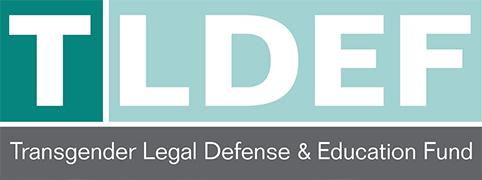What’s in a Name?
Changing your name can affect your life, but for some, something so simple can prove to be so difficult.

Your name is central to your identity, so when someone calls you by a name that you don’t identify with – even if it’s a common nickname for your given name – it can feel disrespectful or even downright rude. That’s how many transgender people feel every time they have to present their identification with their birth name and/or assigned gender. That information does not represent who they are, and the exercise can be dehumanizing and demoralizing.
“Many transgender people suffer indignities, embarrassment and discrimination or worse, every time they have to present identification,” says AC Dumlao, Name Change Project Coordinator at the Transgender Legal Defense & Education Fund (TLDEF). The Name Change Project, according to Dumlao, empowers individuals in the transgender community to live a healthier and safer life by helping them through the process of changing their name to affirm their identity.
For many people in the transgender community, the simple act of producing identification that often doesn’t look like them, doesn’t identify them as the gender they identify with, and uses a birth name that feels foreign to them, can bring shame or even evoke bigotry, discrimination or violence by the inquisitor.
Just having a legal name and identification that matches their identity can help humanize a transgender person’s experience, and help keep them safe from discrimination and harm. They can confidently present ID rather than “coming out” all over again each time, and fearing, each time, what the reaction will be.
“The people who need the most help and can benefit the most from these services are somewhere on the transgender continuum – ranging from non-binary (choosing not to identify with conventional expectations for masculinity or femininity) to choosing to transition,” says Ashley Brundage, an inclusion consultant at PNC who helps train PNC’s lawyers who volunteer with the Name Change Project.
Changing your Name – Harder than you Think
One transgender woman, “Jane,” had suffered such indignities and hopelessness. Jane was dejected, disillusioned and overwhelmed with the legal name change process.
The main document you need to initiate a name change is a birth certificate and for many reasons, one may not have access to their birth certificate. In this instance, Jane only had a birth certificate photocopy and an EBT benefits card. That is not enough to take to court. Dumlao paired Jane with volunteer attorneys, who dug in and compiled the correct documentation for Jane.
With reassurance, encouragement and understanding, and much hard work from the volunteer attorneys, Jane’s name change petition was accepted and Jane was able to get through the process successfully.
The TLDEF Name Change Project
If you don’t know your way around the legal system, it can be intimidating to go before a judge to change your name. Trying to go through it alone, without an advocate, can be overwhelming. Transgender people often quit from frustration when they are faced with doing it on their own.
With the help of an attorney, the court process becomes friendlier and more accessible. The transgender person has an advocate, calling them by their chosen name, using the pronouns they identify with and showing them respect. “It is often the first time that the transgender individual experiences someone of authority treating them kindly,” says Dumlao.
Lawyers Volunteering their Time
The Name Change Project is dependent on volunteer attorneys to donate their time and energy, through a pro bono system, to help individuals successfully obtain a legal name change. The lawyers of PNC’s Legal Department, teaming up with Pittsburgh-based law firm, Reed Smith, have donated many hours to help more than a dozen transgender people in Allegheny County, PA work through the name change process.
While the Name Change Project is one important endeavor, PNC attorneys have donated time to many charitable causes for people in need. So much so, that the Pro Bono Institute recently named PNC as the recipient of its annual Laurie D. Zelon Pro Bono Award, given to an individual or organization for exemplary pro bono service to the poor, disadvantaged and other groups who cannot afford to pay for legal assistance to address critical problems.
“The PNC Legal Department’s Pro Bono Initiative provides PNC attorneys with the opportunity to advance the public good and provides much needed legal support to diverse groups that often do not have the financial resources to access legal services,” says Francis Pudner, PNC attorney, Name Change Project Chair and Pittsburgh Pro Bono Co-chair. “The Name Change Project is a great example of how PNC enriches our communities and the lives of our neighbors.”
Learn more about how PNC employees serve their communities »
